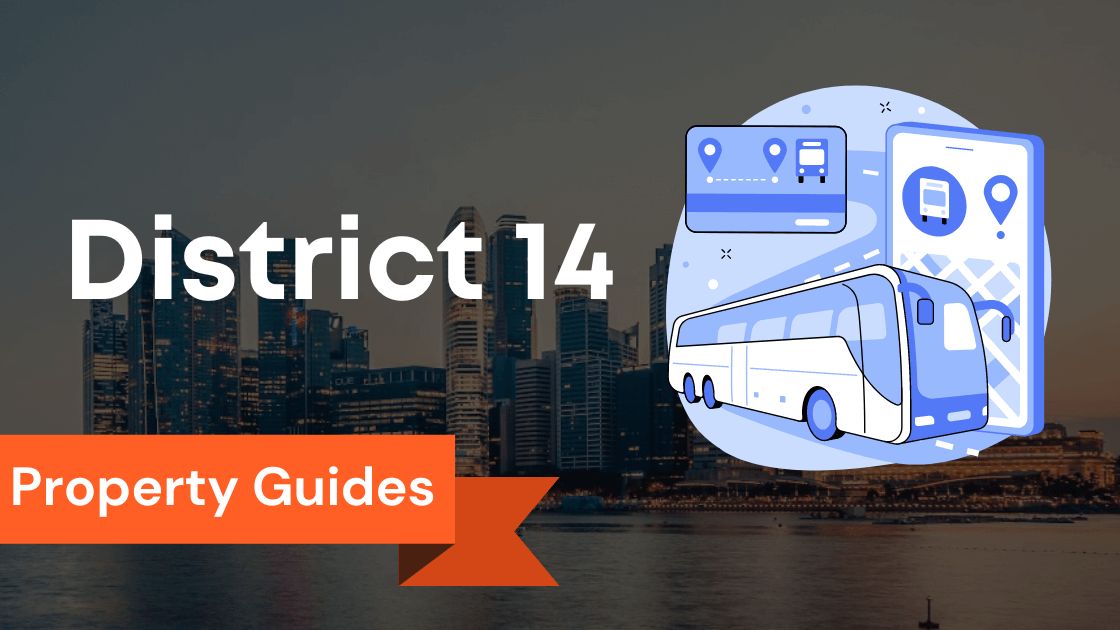Discover District 19 Singapore Condos in Hougang, Punggol, and Sengkang | Your Guide to D19 Singapore Property in Serangoon Garden
Introduction to District 19 Singapore District 19 Singapore is a vibrant and highly sought-after...
Explore District 18 Singapore Property for Sale: Pasir Ris, Tampines Condos at the Best Price – Research and Square Footage
Introduction to District 18 Singapore Situated in the eastern part of Singapore, District 18 is a...
Explore District 17 Singapore Property: Changi Airport Condos for Sale in Changi Village | Find Top Property Listings and Prices
Introduction to District 17 Singapore District 17 Singapore, located in the eastern part of the...
Explore District 23 Singapore: Bukit Batok, Choa Chu Kang, Bukit Panjang, and Dairy Farm | Landed Property and Condos for Sale in D23 | Condo Directory
Discover District 23 Singapore – a vibrant, diverse oasis in the west. Bukit Batok, Bukit Panjang,...
Sale in District 22: Exploring Jurong and Tuas, Boon Lay, Condo Directory, and Condos for Sale in Singapore
Explore the vibrant tapestry of District 22 Singapore, a captivating fusion of residential,...
Discovering the Charm of District 21 in Singapore: A Comprehensive Neighbourhood District Guide in Upper Bukit Timah and Clementi
Step into the enchanting world of District 21 Singapore, where vibrant urban living meets the...
House and Condo for Rent and Sale in District 16 Singapore – Find Your Ideal Property in Bedok and Upper East Coast | Price and Rental
Overview of District 16 Singapore and its popular neighborhoods District 16 Singapore, located in...
Explore District 15 Singapore: Find East Coast Condos and Properties for Sale in Marine Parade | Condo Sale in District 15
District 15 in Singapore is a highly sought-after residential area on the island's eastern coast....
Discover the Charm of District 14 Singapore: Paya Lebar, Geylang, Eunos Condos and More in the Vibrant Condo Directory
Situated in the heart of Singapore, District 14 is a vibrant and bustling area that offers a...
District 13 Singapore: Explore Property Rentals, Condos, and Apartments in the Area for Optimal Gain in Price Trends
District 13 Singapore is a vibrant and bustling area located in the eastern part of the country....
Comprehensive Guide to District 12 Properties: Find Apartments and Condos for Sale in Thomson, Novena, and Toa Payoh Singapore
Discover District 12 Singapore, where vibrant urban living meets convenience. From historical...
Unveiling the District 11 Singapore Property Landscape: Exploring Price Trends, Capital Gain, Apartment, Condos and Rental Yields
Welcome to District 11 Singapore, a captivating blend of urban vibrancy and serene living. Its...

Embark on a captivating journey into the dynamic world of Investing in Singapore Property.
Uncover the secrets to successful ventures through prime locations, market cycles, and REITs.
Navigate legalities, taxes, and emerging trends for wealth creation.
Whether you’re a novice or a seasoned investor, this guide offers insights that promise to reshape your financial future.
Welcome to Singapore property, where each page reveals a treasure trove of wisdom and potential.
Key Takeaways
- Thorough Research and Analysis: To find profitable investment opportunities in Singapore, conduct thorough research and analysis. Collaborate with a trusted real estate agent for valuable insights and high-growth potential properties.
- Prime Investment Areas: Orchard Road, Marina Bay, and Sentosa are sought-after locations for property investment due to their amenities, connectivity, and history of capital appreciation.
- Property Types: Consider various property types for investment, including residential, commercial, and industrial properties. Residential properties like condos and houses offer rental income and capital appreciation, while commercial properties provide stable returns.
- Advantages of Singapore Property Investment: Investing in Singapore property offers stable rental income, potential capital appreciation, and diversification of investment portfolios. The strong economy and infrastructure contribute to the attractiveness of the market.
- Long-Term Financial Security: Property investment provides financial security through rental income and property appreciation. Rental income can cover mortgage payments, and property value may increase over time, offering capital gains.
- Tax Implications: Understand property taxes in Singapore, including property tax, Buyer’s Stamp Duty (BSD), and Seller’s Stamp Duty (SSD). Consult a tax advisor for compliance and to optimize tax strategies.
- Property Market Trends: Stay updated with supply-demand dynamics, government policies, and economic conditions to navigate the property market successfully. Recovering transaction volumes and stabilizing prices are current trends.
- Property Evaluation: Assess potential returns by evaluating factors like location, amenities, rental demand, and property condition before investing. Due diligence helps identify viable investment opportunities.
- Legal Requirements: Adhere to legal requirements for property investment, especially if you’re a foreign investor. Consult a specialized lawyer to ensure compliance and navigate regulations.
- Choosing the Right Location: Location is vital for investment properties. Consider well-connected areas with amenities like schools, malls, and transportation hubs for higher rental potential and resale value.
Exploring Singapore Property Investment Opportunities

How to find profitable investment opportunities in Singapore?
When finding profitable investment opportunities in Singapore, conducting thorough research and analysis is essential.
One of the best ways to do this is by working with a trusted real estate agent with knowledge and experience in the Singapore property market.
They can provide valuable insights and help you identify properties with high growth potential and rental yields.
Which areas in Singapore are the best for property investment?
Singapore offers a diverse range of investment opportunities across various neighborhoods.
Some of the most sought-after areas for property investment include Orchard Road, Marina Bay, and Sentosa.
These locations offer great amenities and connectivity and have a history of strong capital appreciation.
However, it is essential to consider your investment goals and objectives when choosing the correct location.
What are the different types of properties available for investment in Singapore?
Singapore offers a wide range of investment property types, including residential, commercial, and industrial properties.
Residential properties, such as condominiums and landed houses, are viral among investors due to their potential for rental income and capital appreciation.
On the other hand, commercial properties can provide stable rental returns and long-term lease agreements.
Understanding the Benefits of Property Investment in Singapore

What are the advantages of investing in Singapore property?
Investing in Singapore property offers numerous advantages, including stable rental income, potential capital appreciation, and diversification of investment portfolios.
Singapore’s strong economy, political stability, and world-class infrastructure contribute to the attractiveness of the property market, making it a reliable and secure investment option.
How does property investment provide long-term financial security?
Property investment in Singapore can provide long-term financial security through rental income and capital growth.
Rental income from tenants can help cover mortgage payments and generate positive cash flow.
Over time, the property’s value may appreciate, allowing investors to benefit from capital gains when selling the property.
What are the tax implications for property investors in Singapore?
Property investors in Singapore are subject to various tax obligations.
Property tax is levied on the annual value of the property and is payable by the property owner.
Also, sellers must pay Seller’s Stamp Duty (SSD) if the property is sold within a specific holding period.
It is essential to consult with a tax advisor to ensure compliance with all tax laws and regulations.
Navigating the Property Market in Singapore: A Comprehensive Guide

What are the current property market trends in Singapore?
Various factors influence the Singapore property market, including supply and demand dynamics, government policies, and economic conditions.
The market is experiencing a steady recovery, with increased transaction volumes and stabilizing prices.
Staying updated with the latest market trends and understanding the impact of external factors is crucial for successfully navigating the property market.
How to evaluate the potential of a property before investing?
Before investing in a property, it is essential to conduct a thorough evaluation to assess its potential for returns.
Factors to consider include location, nearby amenities and infrastructure, rental demand, and the property’s condition.
Conducting a comprehensive due diligence process can help identify an investment property’s viability and potential upside.
What are the legal requirements for property investment in Singapore?
Property investment in Singapore is governed by specific legal requirements that investors must adhere to.
For example, foreigners are subject to additional restrictions and taxes when purchasing properties.
Engaging a qualified lawyer specializing in real estate to guide you through the legal process and ensure compliance with all regulations is essential.
Property Price Trends in Singapore: Insights for Investors

How have property prices in Singapore evolved over the years?
Property prices in Singapore have experienced significant fluctuations over the years, influenced by economic conditions, government policies, and market sentiment.
In recent times, property prices have shown resilience and have started to recover after a correction period.
Understanding historical price trends can provide insights into the potential future performance of the market.
What factors influence property prices in Singapore?
Several factors influence property prices in Singapore, including supply and demand dynamics, economic growth, government policies, and interest rates.
Infrastructure development, proximity to amenities, and future growth potential can also impact property prices in specific locations.
Investors must stay informed about these factors to make informed investment decisions.
How to predict future property price movements in Singapore?
Predicting future property price movements in Singapore is challenging due to many factors.
However, investors can use various tools and indicators, such as economic forecasts, market trends, and historical data analysis, to make informed predictions.
Consulting with experts, such as real estate agents and property analysts, can also provide valuable insights into the potential direction of property prices.
Becoming a Savvy Property Investor in Singapore: Tips and Tricks

What are the key strategies for successful property investment in Singapore?
Successful property investment in Singapore requires careful planning and execution.
Some key strategies include researching, diversifying your portfolio, focusing on location and rental yield, and staying updated with market trends.
Implementing a disciplined investment strategy and seeking professional advice can help maximize your investment returns.
How to analyze rental yield and potential returns on investment?
When analyzing rental yield and potential returns on investment, it is essential to consider factors such as rental demand, rental income, expenses, and capital appreciation.
Rental yield is calculated by dividing the annual rental income by the property’s purchase price.
Conducting a cash flow analysis can help assess the profitability of an investment property.
What are the common pitfalls to avoid when investing in Singapore property?
Investing in Singapore property comes with certain risks; being aware of potential pitfalls is essential.
Some common pitfalls include overleveraging, underestimating expenses, neglecting to conduct due diligence, and not staying updated with market trends.
Conducting thorough research, seeking professional advice, and exercising caution when making investment decisions are crucial.
Maximizing Return On Investment: Strategies for Successful Property Investment
Choosing the Right Location for Your Investment Property
When it comes to property investment in Singapore, location is critical.
It is essential to carefully consider the location of your investment property, as it can significantly impact its rental potential and resale value.
Look for areas that are well-connected to major amenities and have a high demand for rental properties.
Proximity to schools, shopping malls, public transportation, and business districts can significantly increase the desirability of your investment.
Assessing the Rental Potential of the Property
Before purchasing a property, it is essential to evaluate its rental potential.
Research rental rates in the area and analyze the rental demand for similar properties.
Consider factors such as the property’s size, amenities, and condition to determine its attractiveness to potential tenants.
Aiming for a rental yield that covers your costs and provides a steady stream of passive income is essential.
Understanding the Market Trends and Capital Appreciation
Keeping abreast of market trends is crucial when investing in Singapore property.
Look for areas that have shown consistent and strong capital appreciation over time.
Understanding the factors that drive property value growth, such as infrastructure development, government initiatives, and economic growth, can help you make informed investment decisions.
Conduct thorough research and seek professional advice to identify areas with potential for long-term capital appreciation.
Crucial Considerations Before Investing in Singapore Real Estate
Understanding the Cooling Measures and Their Impact
Singapore has implemented several cooling measures to regulate the real estate market and manage property prices.
These measures aim to ensure market stability and prevent property bubbles.
It would help to familiarize yourself with these measures, such as Additional Buyer’s Stamp Duty (ABSD) and Loan-to-Value (LTV) limits, as they can impact your financing options and overall investment strategy.
Calculating the Property Purchase Costs and Financing Options
Before investing in any property, it is essential to calculate the purchase costs involved.
These costs include stamp duty, legal fees, agent fees, and any renovation or improvement expenses.
Additionally, consider interest rates, loan tenure, and down payment requirements to evaluate your financing options.
Carefully assess your financial capability and align it with your investment goals to ensure you can comfortably manage the property’s financial obligations.
Evaluating the Risks and Returns of Investing in Property
Like any investment, property investment carries its own set of risks and returns.
Conducting a comprehensive risk analysis before making any investment decisions is essential.
Evaluate market volatility, tenant vacancy rates, and potential economic downturns.
Diversify your investment portfolio and consider investing in different types of properties to mitigate risk and optimize returns.
Strategies to Generate Passive Income through Property Investment in Singapore

Exploring Rental Income Potential and Property Management
Rental income is one of the primary ways to generate passive income from property investment.
Calculate the potential rental yield of your investment property and ensure it aligns with your financial objectives.
Consider engaging professional property management services to handle tenant screening, lease agreements, and property maintenance, providing a hassle-free experience and maximizing rental returns.
Investing in Real Estate Investment Trusts (REITs)
Real estate investment trusts (REITs) offer an alternative investment option for those looking to invest in the property market without directly purchasing and owning properties.
REITs allow investors to pool their money and invest in a diversified portfolio of income-generating properties.
By investing in REITs, you can benefit from professional management and potentially higher returns than individual property ownership.
Maximizing Rental Yield through Property Improvement and Upgrades
Property improvement and upgrades can significantly enhance the rental yield of your investment property.
Consider renovating or upgrading certain aspects of the property to attract higher-paying tenants.
Focus on improving key areas such as the kitchen, bathrooms, and overall property aesthetics.
However, assessing the costs versus the potential increase in rental income is essential to ensure it remains a financially viable decision.
Investing Wisely: Differentiating Between Good and Bad Investment Properties
Assessing the Property Value and Future Potential
When evaluating investment properties, assessing their current value and future potential is crucial.
Look for properties that are undervalued or have the potential for capital appreciation.
Consider location, infrastructure development, and potential upcoming projects that could positively impact property prices.
Engage the services of a professional real estate agent in Singapore to gain insights into the market and make informed decisions.
Conducting a Thorough Property Inspection and Due Diligence
Before finalizing any property purchase, conducting a thorough inspection and due diligence is essential.
Engage a qualified home inspector to assess the property’s structural integrity, electrical systems, plumbing, and any potential issues that may require costly repairs.
Review the property’s legal documentation, such as land titles and ownership details, to ensure a smooth and secure transaction.
Seeking Professional Advice from Real Estate Agents in Singapore
Seeking advice from real estate agents in Singapore can significantly assist in navigating the complexities of property investment.
Experienced agents have in-depth knowledge of the local market and can provide valuable insights into investment opportunities, pricing trends, and legal requirements.
They can also help negotiate favorable terms and guide you through the entire investment process, ensuring a seamless and successful investment journey.
Unlocking Success: Strategies for Investing in Commercial Property in Singapore
Understanding the Dynamics of the Commercial Property Market
Investing in commercial property requires a unique set of considerations compared to residential properties.
Understand the commercial property market competition dynamics, including tenant demand, lease terms, and rental rates.
Evaluate the location’s suitability for commercial activities, accessibility, and proximity to target customers.
By understanding the specific requirements of retail tenants, you can make informed decisions and maximize your returns.
Evaluating the Potential Rental Income and Tenant Demand
Assessing the potential rental income and tenant demand is crucial when investing in commercial properties.
Research the average rental and occupancy rates in the area to determine the income-generating potential of the property.
Analyze the local business environment, industry trends, and emerging sectors that could drive tenant demand.
Consider diverse commercial property types, such as office spaces, retail shops, or industrial spaces, to diversify your investment portfolio.
Considerations for Financing and Managing Commercial Properties
Financing and managing commercial properties require careful planning and consideration.
Understand the financing options, such as commercial property loans, and evaluate the interest rates and repayment terms.
Additionally, consider the management requirements for commercial properties, including property maintenance, tenant relationships, and compliance with local regulations.
Engage professional property management firms specializing in commercial properties to ensure smooth operation and maximize profitability.
Mastering the Property Market Cycles: A Guide to Timing Your Investments
Understanding the Property Market Cycles in Singapore
Property market cycles refer to property price and demand fluctuations over time.
Investors must have a good grasp of these cycles to make informed decisions.
Singapore’s property market typically experiences boom and bust cycles, influenced by various factors such as government policies, economic conditions, and market sentiment.
Tips for Timing Your Property Investments
Timing your property investments can have a significant impact on your returns.
Some tips include conducting thorough market research, monitoring economic indicators, staying updated on government policies, and seeking advice from experts or property agents.
Additionally, understanding your financial goals and risk appetite will help you make decisions that align with your investment objectives.
Strategies for Navigating Market Ups and Downs
Property market outlook ups and downs are inevitable, and it’s essential to have strategies in place to navigate these fluctuations.
Some plans include diversifying your property investment portfolio, focusing on long-term growth prospects, considering rental property management, and staying prepared for potential property cooling measures.
Adopting a proactive approach and staying informed can maximize market opportunities and mitigate potential risks.
Diversifying Your Portfolio: Exploring Investment Opportunities Beyond Residential Property
Exploring Commercial Property Investments in Singapore
While residential properties are popular, commercial property investment risks in Singapore are also worth considering.
Commercial properties, such as office spaces, retail spaces, and industrial properties, can offer attractive rental yields and potential capital appreciation.
Conducting thorough property market analysis and understanding the specific dynamics of the commercial property sector is essential when venturing into this investment avenue.
Investing in Industrial Properties
Industrial properties are another viable investment option in Singapore.
These properties include factories, warehouses, and business parks.
Economic growth, technological advancements, and government initiatives influence the demand for industrial spaces.
However, investing in industrial properties requires careful consideration of location, accessibility, and the scalability of the business activities in the area.
Exploring Real Estate Investment Trusts (REITs)
Real Estate Investment Trusts (REITs) are an alternative way to invest in the real estate market without directly owning physical properties.
REITs are investment vehicles that pool funds from multiple investors to invest in various real estate properties.
Investing in REITs offers benefits such as diversification, regular income distribution, and professional management.
However, investors should carefully evaluate REITs’ performance, risk factors, and management track record before making investment decisions.
Navigating the Legalities: Tax Implications of Property Investment in Singapore
Understanding Property Taxes in Singapore
Investing in property in Singapore comes with specific tax implications that investors must be aware of.
Property taxes include Buyer’s Stamp Duty (BSD), Seller’s Stamp Duty (SSD), and Property Tax.
These taxes are levied based on various factors, such as the property’s value, the buyer’s residency status, and the holding period.
Understanding these taxes and compliance with the legal requirements is crucial to avoid potential penalties and optimizing investment returns.
Tips for Minimizing Tax Liabilities
To minimize tax liabilities, investors can explore strategies such as utilizing property tax reliefs and exemptions, leveraging available government schemes and incentives, and consulting with tax experts or professionals.
It is essential to stay updated on any changes in tax regulations and seek proper guidance to ensure compliance and maximize tax savings.
Legal Considerations for Foreign Investors
Foreign investors interested in Singapore property investment should be aware of legal considerations and regulations specific to non-residents.
These considerations include eligibility and restrictions for foreign ownership, additional taxes or fees imposed on foreign buyers, and compliance with the Foreign Account Tax Compliance Act (FATCA).
Engaging the services of a reputable lawyer or consultant specializing in property investment for foreign investors can help navigate these legal complexities.
Expert Insights: Real Estate Investment Trusts (REITs) in the Singapore Context
Introduction to REITs and How They Work
Real Estate Investment Trusts (REITs) have gained popularity among Singapore investors due to their attractive features.
REITs pool funds from investors to invest in income-generating real estate properties.
They must distribute a significant portion of their income to shareholders through dividends.
By investing in REITs, investors can gain exposure to a diversified portfolio of properties and enjoy regular income from rental yields.
Benefits and Risks of Investing in REITs
Investing in REITs has several benefits, including ease of entry, liquidity, professional management, and diversification.
However, risks are also involved, such as changes in interest rates, property market fluctuations, and the financial stability of the REITs themselves.
It is essential to carefully evaluate REITs’ track record, portfolio composition, and financial health before making investment decisions.
Choosing the Right REIT for Your Investment Strategy
Choosing the right REIT requires thoroughly understanding your investment objectives, risk tolerance, and market analysis.
Factors to consider include the type of properties the REIT invests in, the geographical location, the historical performance, and the management team’s expertise.
Conducting due diligence and seeking advice from financial advisors or professionals can help make informed decisions and build a well-rounded REIT investment portfolio.
Long-Term Growth Prospects: Emerging Trends in Singapore Property Investment
Analysing Singapore Property Market Trends
Keeping a pulse on the latest property market trends is instrumental for making informed investment decisions in Singapore.
Economic indicators, government initiatives, demographic changes, and infrastructure development can significantly impact property prices and demand.
Conducting market analysis, studying historical data, and seeking insights from industry experts can help identify emerging trends and evaluate the long-term growth prospects of different property sectors.
Exploring High-Yield Property Investment Opportunities
Investors seeking higher returns can explore high-yield property investment opportunities in Singapore.
These opportunities include properties with strong rental demand, potential for capital appreciation, or unique niche markets.
However, investing in high-yield properties requires thorough research, risk assessment, and consideration of location, rental market dynamics, and property quality.
Future Development Prospects and Hotspots
As Singapore grows and develops, new real estate investment opportunities emerge in different regions and sectors.
Identifying future development prospects and hotspots can provide investors with a competitive edge.
Factors to consider include urban planning initiatives, government development plans, upcoming infrastructure projects, and population and business growth trends.
Staying informed about these developments can help investors target areas with the potential for long-term capital appreciation and rental demand.
Conclusion
Are you intrigued by the prospect of delving into the world of Singaporean property investment?
Embarking on this journey promises to uncover lucrative opportunities that can secure your financial future.
As we venture into the intricacies of this realm, be prepared to witness a captivating blend of market insights, strategic maneuvers, and expert guidance that will undoubtedly elevate your investment game.
Imagine a realm where keywords hold the key to unlocking hidden treasures.
Picture yourself navigating the labyrinth of Singapore’s property market with finesse, exploring avenues that promise substantial returns and uncharted territories of financial growth.
Delve into the art of crafting content that resonates with your audience, utilizing bursts of ingenuity and perplexity to create an immersive experience.
Frequently Asked Questions
What is property investing?
Property investing refers to purchasing a property to earn a return on investment by either renting it out or selling it at a higher price in the future.
Is investing in Singapore property a good investment?
Investing in Singapore property has proven to be a good investment option.
The stable economy, strong property market, and favorable tax policies make it an attractive choice for local and foreign investors.
How does property tax affect my investment?
Property tax is a tax imposed on property owners based on the value of their property.
It is an essential factor to consider as it can affect the returns on your investment.
Understanding the property tax rates and regulations before investing in Singapore property is advisable.
How can I make money from property?
There are several ways to make money from property investing in Singapore.
You can earn rental income by renting out your property or profit by buying a property and selling it at a higher price when the market conditions are favorable.
What are the stamp duties involved in property investment?
Stamp duties are taxes imposed on property transactions in Singapore.
They include Buyer’s Stamp Duty (BSD), Additional Buyer’s Stamp Duty (ABSD), and Seller’s Stamp Duty (SSD).
The rates and exemptions for these stamp duties vary based on the buyer’s residency status and the number of properties owned.
How can I invest in Singapore property through Real Estate Investment Trusts (REITs)?
Investing in REITs provides an opportunity to invest in a diversified portfolio of properties without requiring direct property ownership.
By buying units of a REIT, you can benefit from rental income and potential capital appreciation.
What is the cost of property in Singapore?
The cost of property in Singapore varies based on factors such as location, property type, and size.
It is advisable to do thorough research and consult with a real estate agent to understand the current market prices.
How do I purchase a property in Singapore?
To buy a property in Singapore, you will need to engage the services of a real estate agent, secure financing from a bank or financial institution, and go through the necessary legal processes such as property valuation and conveyancing.
What role does a real estate agent play in property investment?
A real estate agent plays a crucial role in property investment by assisting buyers in finding suitable properties, negotiating prices, and handling the necessary paperwork.
They have in-depth knowledge of the property market and can provide valuable advice to investors.
Can I invest in property stocks?
You can invest in property stocks listed on the stock exchange.
Property stocks are shares of companies involved in the real estate sector, such as property developers, real estate investment trusts (REITs), and property management companies.













